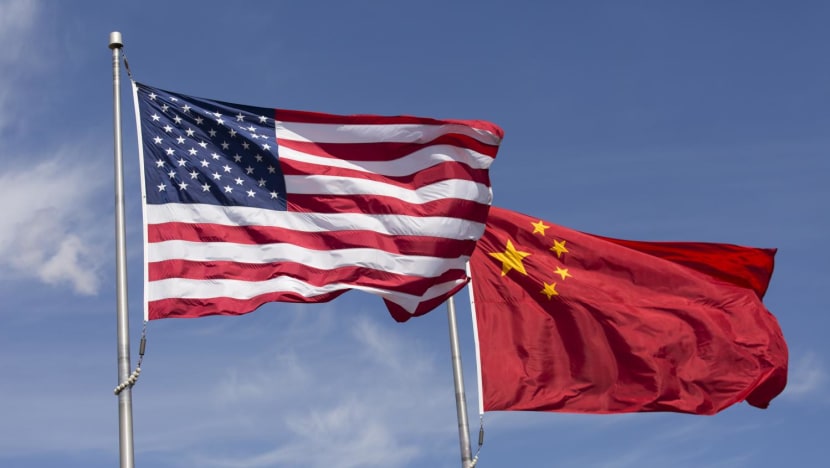US-China relationship is key to peace and stability in Asia and the world: DPM Wong

SINGAPORE: The US-China relationship is key to peace and stability in Asia and the world, said Deputy Prime Minister Lawrence Wong on Monday (Nov 14).
Speaking at the 17th Asia-Pacific Conference of German Business (APK), Mr Wong noted that geopolitical rivalry, contestation and the erosion of strategic trust are reshaping the world.
“Ultimately, key to peace and stability in Asia and the world is the state of the US-China relationship. Both powers have legitimate interests across Asia,” he said.
“And while we can expect more intense and vigorous competition between the two powers in the years ahead, we hope they will eventually be able to find a way to co-exist together, so that we can have an environment that is stable and inclusive, one where countries big and small can compete and cooperate peacefully together.”
German Chancellor Olaf Scholz also spoke at the APK on his first official visit to Singapore. He will also meet President Halimah Yacob and Prime Minister Lee Hsien Loong during the trip.
Unlike relations with the former Soviet Union, the US and China are economically more interdependent, said Mr Wong, who is also Finance Minister.
“Unfortunately these interconnections have not prevented relations from worsening. Paradoxically they may even be making heightened tensions more dangerous,” he said.
This is because of how interdependence in strategic areas like critical technologies can be used as instruments of geopolitcal contest, he added.
It is hard to imagine how the US and China can decouple their economies, and even selective decoupling will not be easy or painless, he said, adding that it will have a “devastating impact” on the global economy.
“Increasingly, for all of us in Asia, we too must confront the risk of confrontation, conflict or worse, possibly even war happening in Asia," he added.
"No one wants this to happen, but amidst mounting tensions and a lack of strategic trust, we know that accidents can happen, leading to unintended consequences.”
All of these global developments will have profound implications for everyone globally, including countries like Singapore and Germany, which are both export-oriented economies that have thrived on the principles of free trade and a rules-based international order, said Mr Wong.
Related:
Leaders from the US and China will set the tone for this bilateral relationship, said Mr Wong, noting that President Joe Biden and President Xi Jinping will have their first face-to-face meeting at the G20 summit in Bali on Monday.
“We hope that through such interactions, both sides can better understand each other and build a more stable relationship,” said the Deputy Prime Minister.
While the US-China relationship is the most consequential, this does not mean that the rest of the world are passive bystanders, he added.
“We too have agency and, collectively, we have the ability to shape developments in the region and the world. The reality is that we are moving towards a multi-polar world, one characterised by a wide diversity of overlapping interests,” said Mr Wong.
In Asia, India is rapidly emerging and set to become the third-largest economy in the world by 2030, he added.
“India will play a larger role in regional and international affairs, and it will make its own calculations independently on how to advance India’s interests in the world,” he said.
Southeast Asian countries are “becoming a growth centre in our own right” with a combined population of 660 million people. They have a total gross domestic product of about US$3 trillion now and that is projected to double or quadruple over the next two decades.
“Within ASEAN, no country wants to be in the position to have to choose sides between China or the US. There can be no good outcome for us, if our countries were forced into two camps with a hard line or worse, even a wall in between,” said Mr Wong.
Between the European Union and ASEAN, there are many new opportunities for cooperation, including in the area of sustainability, said Mr Wong, adding that green businesses in ASEAN are set to expand further in coming years.
“Singapore will do our part in all this, by helping connect ASEAN to the world. As an international trade and financial centre, we serve as an important gateway for people and business," he said.
“We will build on the linkages, build around Singapore, and deepen our connectivity with other regions and countries.
"And importantly, the close ties between Germany and Singapore can help to anchor and bring our two regions, EU and ASEAN, closer together.”














